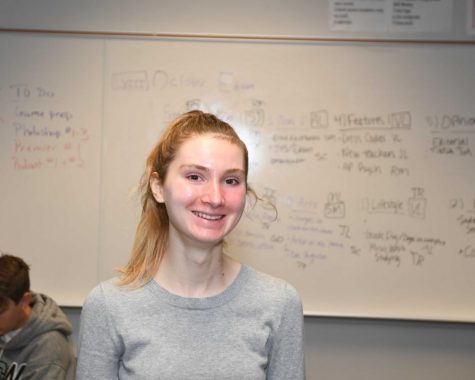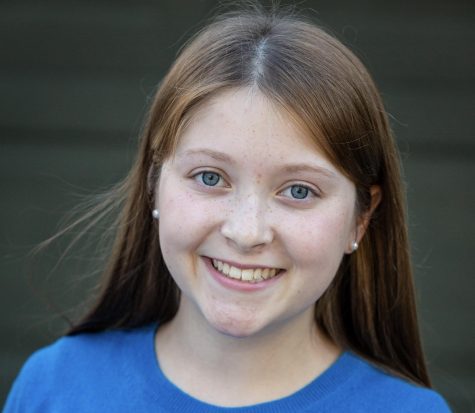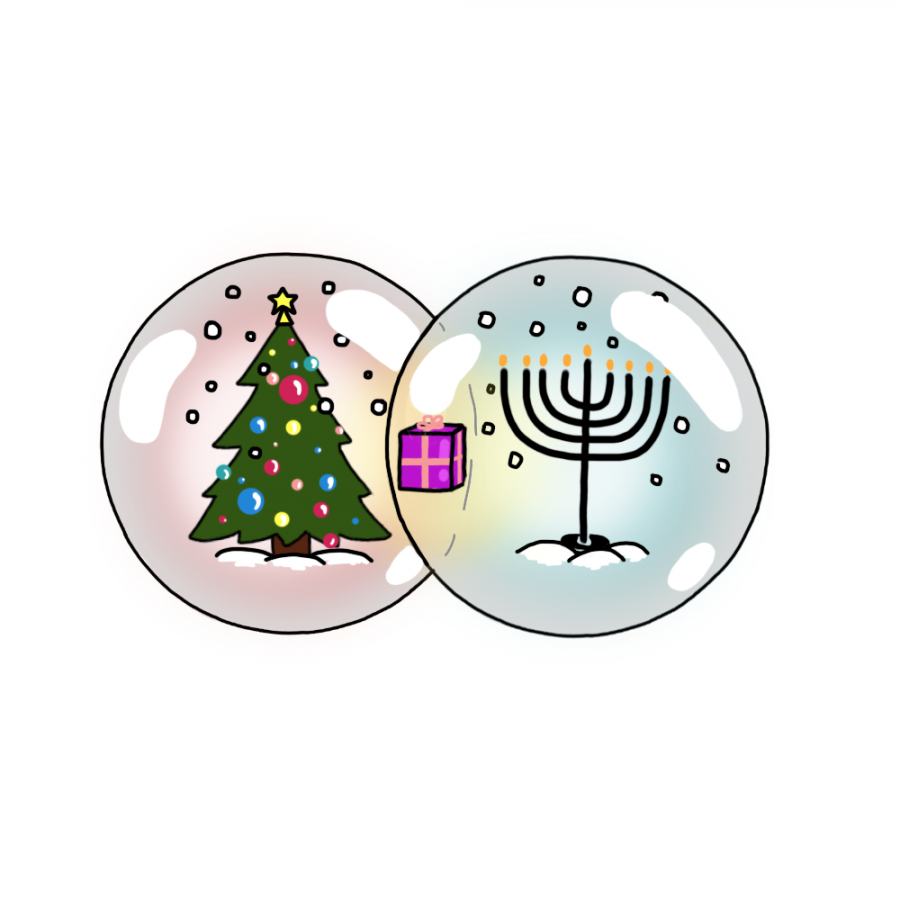What should “merry Christmas” mean?
Holiday greetings ideally promote unity, regardless of the verbiage used.
December at Jesuit is almost indisputably magical. Between extravagant Christmas-themed Food Drive assemblies featuring “Santa Clarke,” candy cane sales, and the Christmas Mass of Anticipation, the holiday season transforms campus in appearance and spirit.
Curiously, however, Jesuit’s intensely Christmas-oriented festivities diverge from America’s cultural progression towards a more Christmas-neutral holiday season.
As American society becomes more conscious of what it means to uphold inclusivity and diversity, some have questioned whether exclusively Christmas-based marketing and celebrations cause discomfort—or at least an intangible sense of isolation—for members of non-celebrating faith traditions. For the sake of appealing to a larger spectrum of beliefs, many businesses in the customer-service industry, most notably Starbucks, have embraced holiday-neutral slogans and memorabilia. In particular, the phrase “happy holidays” has become a neutral alternative to “merry Christmas.”
Like most rhetorical shifts towards inclusivity, “happy holidays” has incited political controversy. In May 2018, President Trump declared, “we’re starting to say merry Christmas again… You notice a big difference between now and two or three years ago? It was going in the other direction rapidly, right?” (The Hill).
According to a poll conducted by NPR/PBS in December 2018, among registered Democrats, 42% prefer “merry Christmas” compared to 47% who prefer the neutral greeting. In contrast, among registered Republicans, 86% use “merry Christmas,” and only 13% prefer “happy holidays” (NPR).
The fact that Christmas greetings are at the center of a partisan cultural battle raises a critical question: is the argument really about Christmas as a religious holiday? Or do the Americans holding onto “merry Christmas,” the politicians posturing over Christmas’s apparent decline in holiday marketing, simply cast Christmas as a religiously-detached American tradition?
“We are in a co-opting fight [against Christmas’s commercialization],” Campus Ministry Director Mr. Clarke said. “When Black Friday sales are the ‘start of Christmas,’ you have to wonder whether the political fight is really about Christmas as we at Jesuit celebrate it.”
If the alleged “war on Christmas” is less about religion and simply centered on a relatively commodified tradition, then the purported controversy surrounding “happy holidays” appears overblown. Though Christmas is deeply intertwined with many Americans’ cultural identity, attempts at avoiding offense with neutral holiday greetings don’t necessarily void America’s Christmas-steeped holiday aesthetics and Christmas traditions that remain prevalent.
The shift towards “happy holidays” among certain Americans is neither a serious attack against Christian values or American values. Instead, like many cultural inflection points, the dispute over inclusive greetings during the Christmas season is simply another drop in the bucket of a “politically correct” terminology battle between progressives and conservatives, a rallying cry for those concerned with the erasure of what it means to be American via contrived means of inclusivity.
It’s concerning that some politically reactionary Americans, including President Trump, would wield “merry Christmas” not as a genuine expression of religion or of holiday spirit, but as a taunting, incendiary response to increased efforts for inclusivity.
Moreover, if the culture war over “merry Christmas” really is a co-opted dispute over Americans’ broad sense of identity, not over Christmas’s connection to a sacred biblical event, then Jesuit’s wholehearted acceptance of Christmas begins to make more sense. Jesuit’s status as a Catholic school deeply associates it with Christmas’s religious roots.
The Jesuit community, however, doesn’t exist in an insulated cultural bubble. Many students are familiar with the battle surrounding the holiday season’s two standard greetings—a battle exacerbated by those who employ the more exclusive greeting for political purposes—making it crucial to consider what rationale should prompt “merry Christmas” and other Christmas-oriented traditions.
“When I say ‘merry Christmas,’ it’s an expression of my faith and belief that Christmas is a holy day,” Mr. Clarke said. “I certainly don’t mean to offend anybody, and I’ve never been offended by ‘happy holidays.’”
America’s celebration of Christmas is at its core meant to instill joy. For Christians, Christmas is a celebration of something even greater, a celebration of life, freedom from sin, and justice brought about by the birth of Jesus. Whether as an expression of faith or of general holiday cheer, “merry Christmas” should be used as a means of spreading that joy, not as a weaponized, less-PC alternative to “happy holidays.”
For those concerned with whether it’s “okay” to still specifically reference Christmas, intent matters much more than specific terminology. If “happy holidays” truly inspires a sense of cultural insecurity for some Americans, that’s a sign that arguments over Christmas greetings are a proxy for an ultimately unrelated social conflict.
Regardless of one’s manner of celebrating the holiday season, inclusivity is most enhanced by embracing the collective sense of fulfillment that the holiday season is meant to emphasize.
Senior Alyssa Knudsen notes that with the way Jesuit honors Christmas, her Jewish faith doesn’t prevent her from appreciating the beauty of Jesuit’s Christmas celebration and the unity it inspires.
“I love Christmas at Jesuit. With the lights strung around campus, walking down the halls, Christmas is really beautiful,” Knudsen said. “I think that as a Catholic school, it makes sense that we emphasize Christmas, because it’s so entrenched in the Catholic ethos and the American ethos.”
With the religious reverence associated with its Christmas festivities, Jesuit seems to set an example for how Christmas should be celebrated. “Merry Christmas” at Jesuit doesn’t signify an exclusionary verbal weapon meant to minimize other celebrations of faith. Rather, it signifies a broad sense of community, love, and purpose that transcends artificial barriers between those who celebrate Christmas and those who don’t.
Senior Janie Koontz also emphasizes that while Jesuit typically centers its holiday season around Christmas, faculty and administration have made concrete efforts to acknowledge other religions and broadcast the voices of students from non-Catholic religions in other capacities, such as brown-bags.
“I definitely think they’re currently making attempts to bridge the gap and not make [kids from other faith traditions] feel as isolated, even though there are very few of us at Jesuit,” Koontz said. “Continuing to do that and letting kids who have different faiths speak up and share their experiences and share their faith even when it differs from the main one at Jesuit is a step in the right direction.”

Shawna Muckle, 17, is a senior at Jesuit High School. She has been a member of the Chronicle staff for three years in various capacities, and she is currently one of its chief editors. Shawna is fascinated by politics and government, and she enjoys writing articles for the Chronicle pertaining to local and national political developments, alongside issues tied to social justice and personal identity. Some of her favorite pieces she’s written include a feature on Jesuit students’ experience with microaggressions, a recap of the 2018 midterm elections, and an article discussing last year’s clerical abuse scandal within the Catholic Church. Outside of journalism, Shawna is the leader of Jesuit’s Model United Nations club and a member of her school’s Ethics Bowl team, which was a 2019 national champion. Shawna is also a Precinct Committee Person for the Washington County Democrats. In her free time, Shawna can be found aggressively running up hills, drinking boba, and yeeting off on road trips to Seattle (for unspecified reasons). Ask her about her opinions on Congress, specifically a) Republicans and b) the crisis with the federal deficit. In the future, Shawna hopes to pursue journalism in college and, later on, as a congressional reporter in DC.




